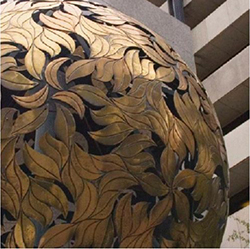Compliance
Irish Central Bank To Regulate New Fund Vehicle

Standfirst: The Central Bank of Ireland (Ireland's all-in-one banking regulator and fund regulator) has said that it will be the supervisory authority for the incoming ICAV structure and will take a similar approach in respect of filings and reviews to the one it takes to fund vehicles that it authorises at the moment, depending on whether the scheme in question is a UCITS or an AIF.
The Central Bank of Ireland (Ireland's all-in-one banking
regulator and fund regulator) has announced that it will be the
supervisory authority for the incoming Irish Collective
Asset-management Vehicle structure and will take a similar
approach in respect of filings and review to the one it takes to
fund vehicles that it authorises at the moment, depending on
whether the scheme in question is a UCITS or an AIF.
The Irish parliament is making progress with the Bill which will,
in due course, introduce the ICAV, a new corporate structure for
the establishment of collective investment schemes in Ireland,
and increase the range of fund structures available to
promoters.
The ICAV Bill was published in mid-December. Its preparation,
with which we have been and are extensively involved, for use in
the offshore market underlines the Irish Government's commitment
to beefing up the funds industry and represents the fulfilment of
one of the initiatives outlined in its “Strategy for the
International Financial Services Industry in Ireland
2011-2016.”
What is an ICAV?
The ICAV will sit alongside the public limited company structure,
which has been the most successful and popular of the existing
Irish fund structures to date. The ICAV is expected to be
incorporated with the Central Bank (although this has yet to be
confirmed) and will provide a tailor-made fund vehicle to which
ought to be available as a corporate structure to both
Undertakings for Collective Investment in Transferable Securities
(UCITS) and alternative investment funds (AIFS).
Why is Ireland introducing it?
The ICAV will represent a modernisation of the corporate fund
structure and is conceived specifically with the needs of
investment funds in mind. The advantage of a bespoke funds
vehicle is that an investment fund established as an ICAV will
not suffer from endless amendments to certain pieces of European
Union and domestic company legislation which are targeted at
trading companies rather than investment funds.
The ICAV will be able to 'elect' its classification under the US
'check-the-box' taxation rules. The present-day Irish plc is not
permitted to 'check-the-box' for US tax purposes, meaning that it
is treated as a separate entity and subject to two levels of tax:
one at the corporate level where the income is earned and the
second at shareholder level when distributions are made. An
'eligible entity', i.e. an entity that can 'elect' its
classification under the 'check-the-box' rules, can elect for
alternative, more favourable tax-treatment. The ICAV will be an
'eligible entity' for these purposes.
Features of the ICAV
The primary features of the ICAV are to be as follows.
* An ICAV will not have the status of an ordinary Irish company
that has been established under the Irish Companies Acts.
Instead, it will have its own legislative regime which will help
to ensure that the ICAV is distinguished from ordinary companies
and therefore will not be subject to those aspects of company law
that would not be relevant or appropriate to a collective
investment scheme.
* An ICAV may be established as an 'umbrella structure' with a
number of sub-funds and share classes. It may be listed on a
stock exchange, which itself will act as a front-line regulator.
Investors are to own shares in the ICAV and the ICAV should be
able to issue and redeem shares continually according to demand
from investors. In this regard, there is to be no difference
between the ICAV and other open-ended collective investment
schemes.
* The ICAV will have a governing document which is likely to be
known as an instrument of incorporation or IOI. Similar to the
memorandum and articles of association of an investment company,
this will be the constitutional document of the ICAV. The primary
reason in differentiating between a memorandum and articles of
association and an IOI is to emphasise the distinction between
the ICAV and existing plcs as different types of corporate
entity.
* In the case of changes to the IOI, it is envisaged that there
will be no need for the board to obtain prior approval from
investors as long as the depositary certifies that changes to the
IOI do not prejudice the interests of investors (similar to the
requirements relating to changes to the trust deed of a unit
trust).
* Like a plc, an ICAV will have to have a board of directors to
govern its affairs. Similar to other collective investment
schemes, the ICAV may either be managed by an external management
company or be a self-managed entity.
* Depositary requirements that resemble those that currently
exist for an investment company will apply to an ICAV (although,
of course, these will vary depending on whether the ICAV is a
UCITS or an AIF).
* It is likely that the directors of an open-ended ICAV will be
permitted to elect to dispense with the need to hold an annual
general meeting by giving written notice to all of the ICAV's
shareholders.
* Existing funds established as plcs will have the option to
convert to ICAV status.
* Michael Jackson, Tara Doyle, Dualta Counihan, Liz Grace, Philip
Lovegrove and Shay Lydon of Matheson Partners wrote this summary.